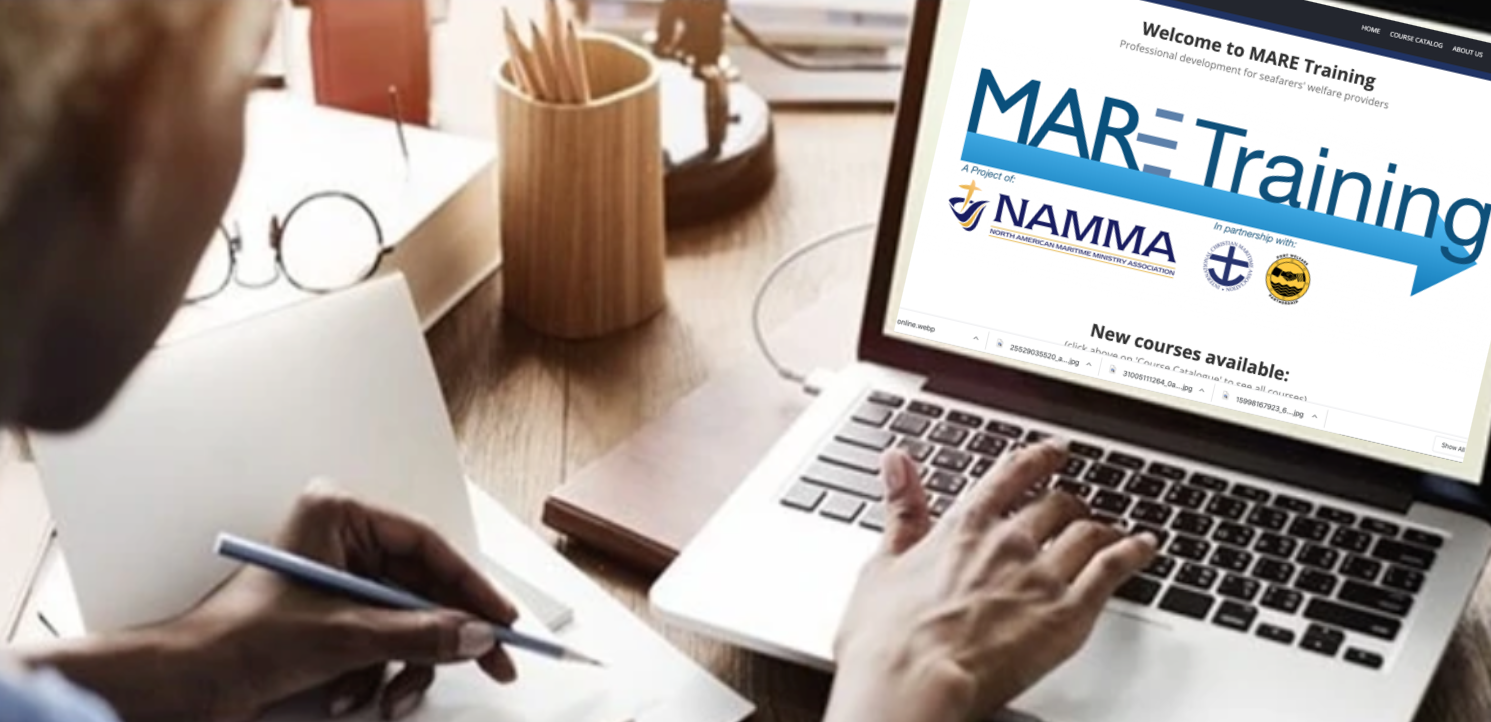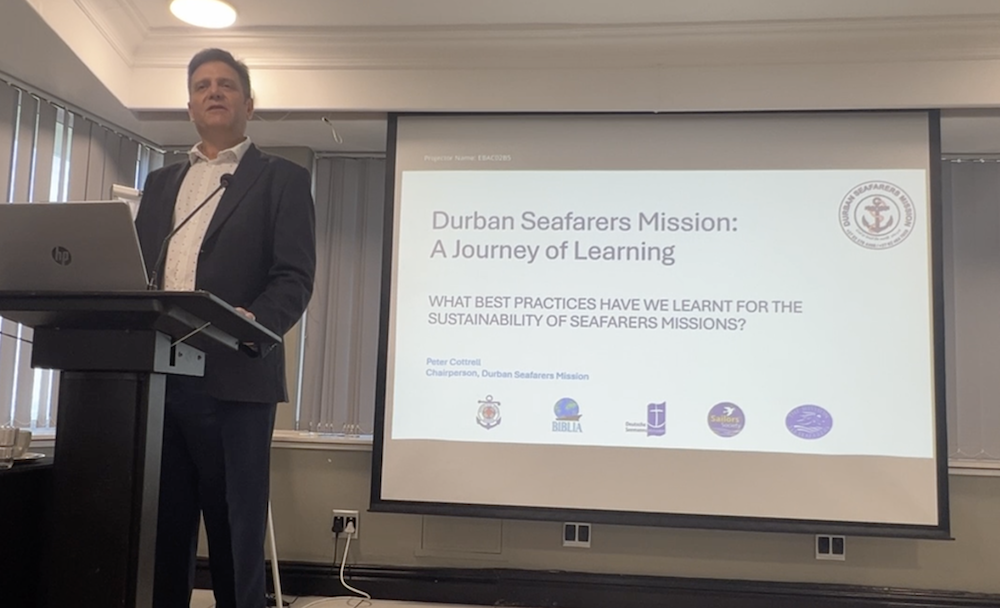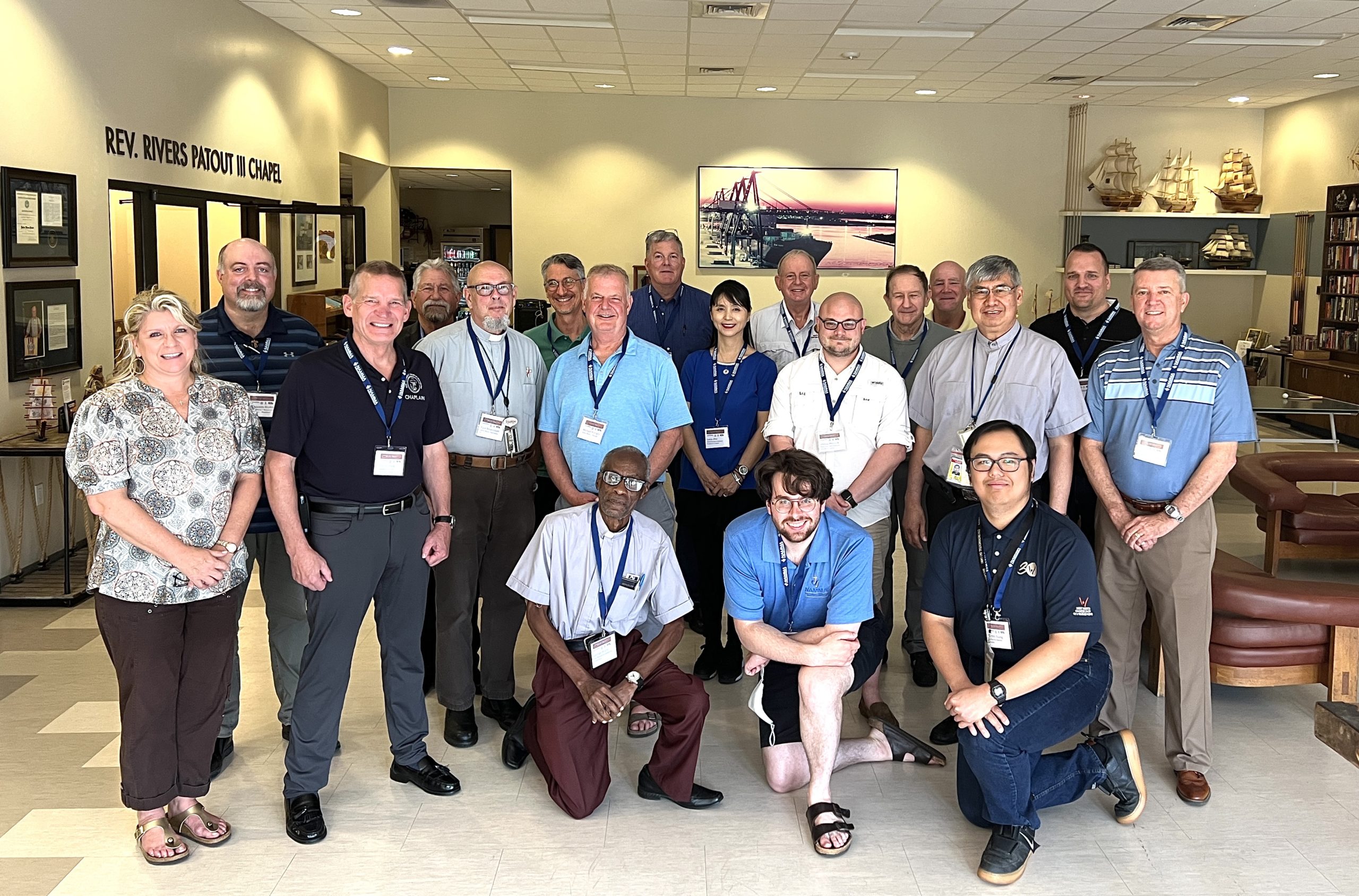There is a lot to learn in welfare and wellbeing service to seafarers. It is a unique occupation that requires unique skills: listening, social service or pastoral care are harder for many of us than we would like to admit; a port community is a busy, commercial environment in which human needs can easily be lost in the shuffle; and the sea has told stories of traumatic crises which a land-dweller can hardly anticipate. No one is naturally good at everything in seafarers’ welfare, and even the most experienced of us stand to learn new things.
What’s more, almost everyone who works in seafarers’ welfare has come to it from a different background – there is no universal training or accreditation system, and many organizations are too far apart to share ideas and experience with each other regularly. Chaplains, ship visitors, academics, and volunteers have discovered lots over the years about what approaches and techniques in their work best serve seafarers, but too often this information remains inaccessible to new welfare workers.
The North American Maritime Ministry Association and some of its essential partner organizations have developed online courses to equip seafarers’ welfare workers and share knowledge across distances and experience levels. The first such project – the Ship Welfare Visitor Course (shipwelfarevisitor.com), offered by the UK’s Merchant Navy Welfare Board and produced by NAMMA – has been a great success in giving newcomers to seafarers’ welfare some of the basics of their work, and has recently passed 500 students enrolled. Now NAMMA has built on its mission of seafarers’ welfare education with MARE Training (maretraining.com), an online learning platform with courses for everyone in seafarers’ welfare, whether center workers, ship visitors, or board members, new or experienced.
“Our mission talks about education, encouragement, and professional development. All these aspects of the mission of NAMMA are found in MARE Training” says NAMMA Vice President Michelle DePooter. Having sampled some of the courses, Chaplain DePooter also testified to MARE Training’s value for her own ministry: “we have been looking for training programs and courses for our volunteers for awhile, and are happy to see this training which is easy is access and all in one place, and provided and endorsed by NAMMA.”
MARE Training – A Collaborative Vision
One of MARE Training’s strengths is bridging the gap between those who want online training and those with the resources to make courses, a gap which in the past resulted in polished courses going untaken and pressing training needs going unmet. The ideas for courses come directly from workers in seafarers’ welfare – NAMMA members, ICMA members, and partner organizations are all encouraged to host their courses on MARE Training, and we are also happy to use our team to help individual ministries turn their ideas for online courses into realities. This all makes sure that course content is about the skills proven useful by chaplains’, center directors’, and volunteers’ experience.
MARE Training also gets support from organizations like the TK Foundation and ISWAN’s International Port Welfare Partnership Program, as managed by the Merchant Navy Welfare Board (MNWB). The IPWP program managed by the MNWB shares NAMMA’s vision of strengthening ministry to seafarers through the sharing of experience and innovation. The joining of the MNWB’s vision and resources to members of networks like NAMMA, ICMA, and ISWAN was key to the success of the Ship Welfare Visitor Course, and that collaboration is the example after which MARE Training is modelled.
Peter Tomlin, CEO of the MNWB, said: “It was a privilege to work with NAMMA to develop the Ship Welfare Visitor online training course, an excellent example of how close collaboration can help support hundreds of Christian organisations working for the welfare of seafarers around the globe. We are delighted that the IPWP Programme has the full support of organisations such ICMA and NAMMA, who, like the MNWB, understand the benefits of partnership and how it helps to better support our roles.”
Past well-financed online training attempts have failed due to lack of connection with the learners, and other learning ideas have failed because of lack of finance behind them. MARE Training is meant as a solution to these problems by connecting the course makers with seafarers’ welfare providers in the NAMMA and ICMA networks, so that the money and resources to make useful courses are put in the hands of those who best know where the need is. With financial backing from these partner organizations, we also look forward to being able to take on more ambitious projects in future.
In MARE Training, NAMMA continues its policy of collaboration not only with the MNWB, but also extends the invitation to collaborate on courses to other organizations; most recently we have drafted an introductory course for a local member mission, and hope to make similar courses for others. One of our great hopes for MARE Training is that the one website will be able to host courses made that other organizations have put together with or without NAMMA’s help, so that all the different courses and areas of expertise the field of seafarers’ welfare has to offer are easily accessible to those interested. We are excited that the ITF Seafarers’ Trust has licensed the use of ten modules from the MARI-Wel course library developed with the World Maritime University. As an ecumenical organization committed to improvement in welfare for seafarers, we value boosting seafarers’ welfare organizations and putting them in contact as ends in themselves.
The courses currently on offer include crisis response, board membership, port welfare committees, and the relational aspects of ship visiting, as well as organizational intro courses to NAMMA and other organizations. The MARE Training team curates content to make sure it is valuable and engaging, and is happy with third parties’ permission to work to improve the courses hosted.
Anatomy of a MARE Training Course
A typical MARE Training course runs is short and includes a mixture of text, video, and test questions. This is to ensure that students with different learning styles and preferences get to learn the information in multiple ways and to demonstrate and check their knowledge. Video lessons are usually three to ten minutes long and feature experts from the world of seafarers’ welfare – for example, the Crisis Response Course is presented by trauma expert Dr. Marion Gibson and features stories given by crisis survivors, and the effective ship visiting course features NAMMA members reflecting on how they approach their work. Aside from benefiting from the personal touch added by presenters, a chaplain watching a course video may well recognize a colleague from a past conference or collaboration.
Text lessons usually present the same topic as videos, but in a more systematic way – items on lists are put into bullet points for comparison with each other rather than simply flashing by one after another, key points can be explained in fuller paragraphs, and links are included for sources and further reading. Some courses include sections of the Maritime Labour Convention, 2006 so that students can learn the laws and recommendations that apply to the subject.
The majority of test questions are multiple choice or drag-and-drop, and these are meant to quickly check student comprehension. Other questions are short-answers, giving students an opportunity to reflect on how the content relates to their own practice. In the Crisis Response course, for example, students are asked to think about their own experiences with crises and what preparations they wish they had had. At the end of the course, students are given a digital token representing course completion. Our hope is that they thus come away not only with knowledge of the course subject, but also with some personal engagement in the relevant questions and concrete demonstration of that fact.
Things to Come for MARE Training
MARE Training is already succeeding at providing accessible learning to seafarers’ welfare professionals – more than 100 users have taken courses, and the platform’s instructor tools are giving us feedback about how the courses are being used. Over the coming year, we plan to develop more courses and to continue to research how to make existing courses more engaging and informative. Right now, our hope is that NAMMA members look at what is available on MARE Training and take courses that are interesting to them; long term, our hope is that this sharing of knowledge can help seafarers’ ministries make their ports better places for those they serve.





